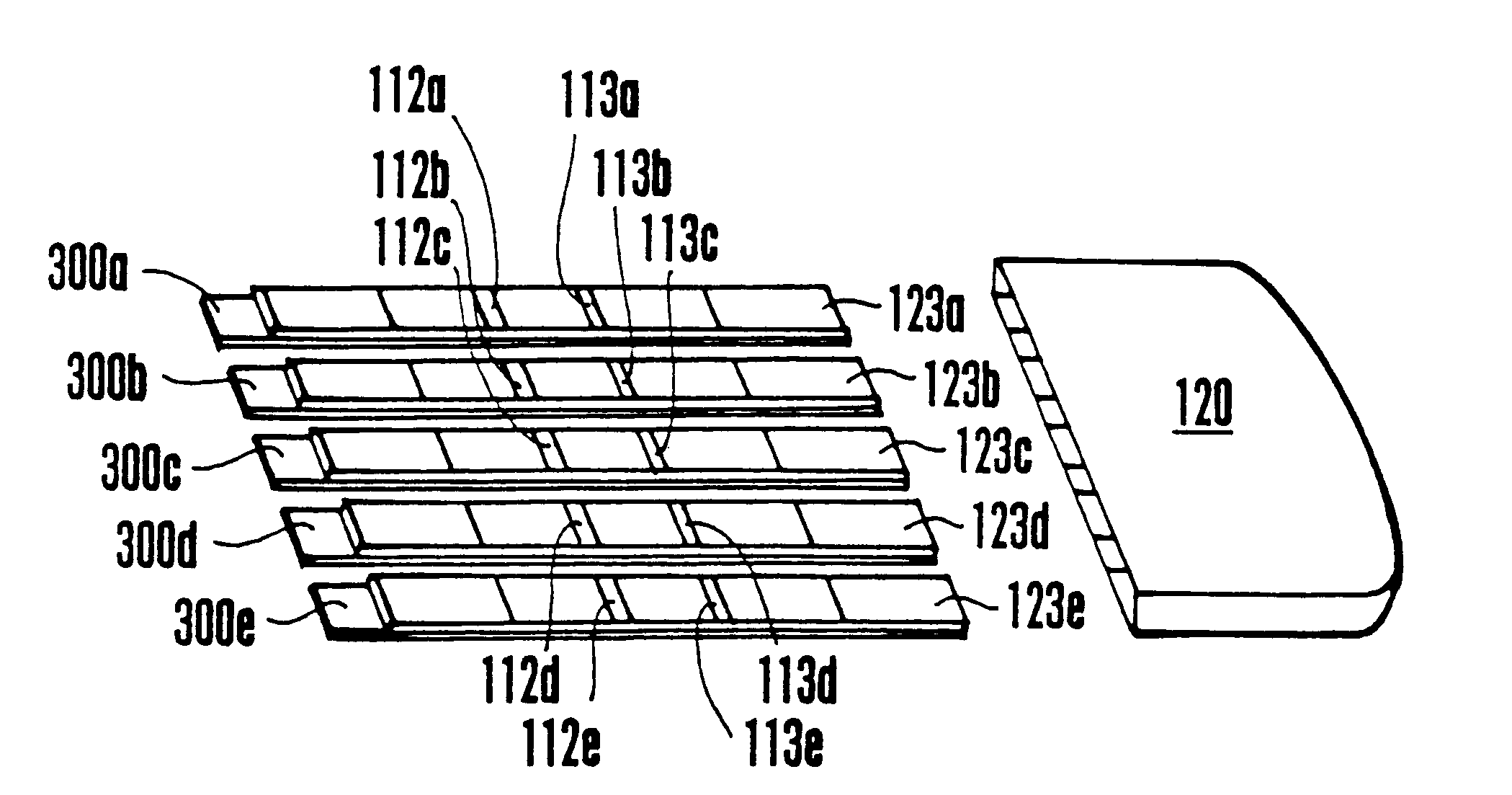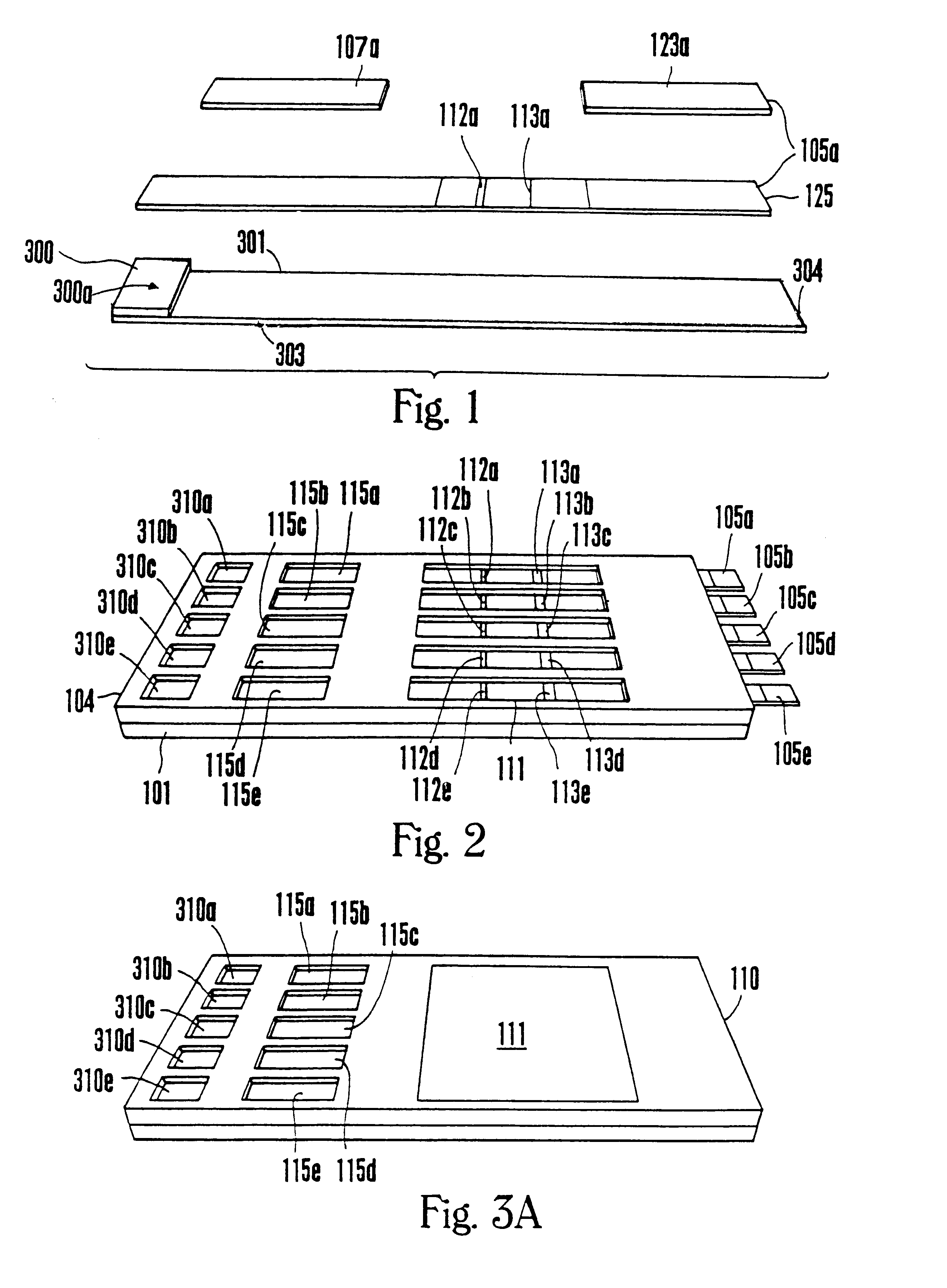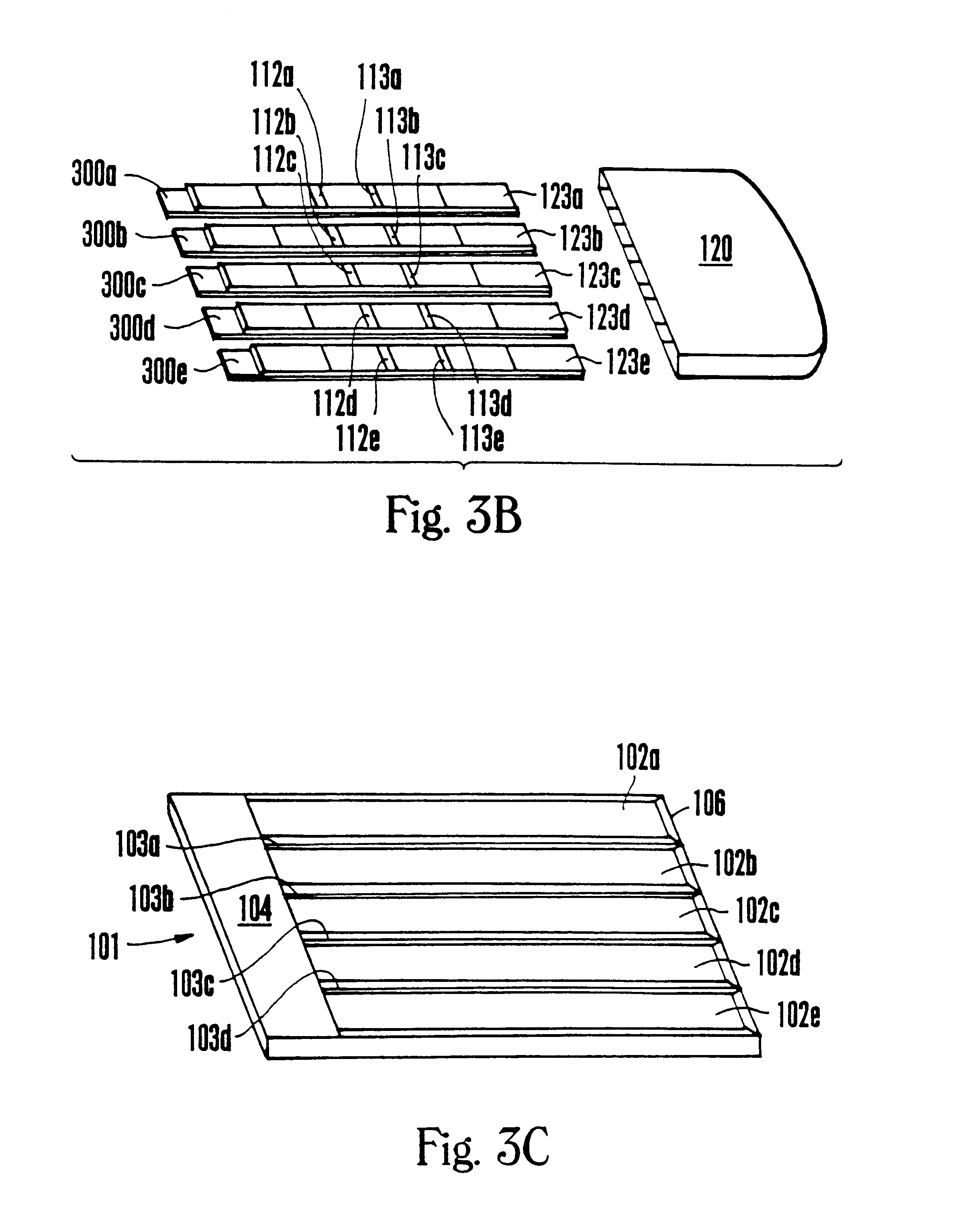Multiple analyte assay device with sample integrity monitoring system
a multi-analyte, integrity monitoring technology, applied in the direction of laboratory glassware, process and machine control, instruments, etc., can solve the problems of not only the loss of sensitivity of the assay, but also the esthetic and hygienic problems of the analyst, and the use of a single analyte to d
- Summary
- Abstract
- Description
- Claims
- Application Information
AI Technical Summary
Benefits of technology
Problems solved by technology
Method used
Image
Examples
example 1
Assay for Six Drugs of Abuse
Six chromatographic strips for detecting drugs of abuse (methamphetamine, opiates / morphine, marijuana / tetrahydrocannabinol, amphetamine, cocaine / benzoylecgonine, benzodiazepine) each of a size of 5 mm.times.73 mm were placed in slots of the device of the invention as shown in FIG. 2. Each strip consisted of a colloidal gold-labeled antibody (specific to the target drug) incorporated into the upstream end of the strip (tracer zone) in the middle of a 30 mm fiberglass matrix, and an antigen-BSA binder immobilized in the center (binder zone) of a 22 mm nitrocellulose membrane lying downstream of, and in fluid communication with, the fiberglass matrix (wherein the antigen is either the drug of interest or an analog thereof having the same immunogenicity). Downstream to the nitrocellulose membrane was a 26 mm long filter paper. The matrix, membrane and filter paper were attached on a vinyl sheet so each was in fluid communication, by overlapping 2 mm of each o...
PUM
| Property | Measurement | Unit |
|---|---|---|
| specific gravity | aaaaa | aaaaa |
| specific gravity | aaaaa | aaaaa |
| time | aaaaa | aaaaa |
Abstract
Description
Claims
Application Information
 Login to View More
Login to View More - R&D
- Intellectual Property
- Life Sciences
- Materials
- Tech Scout
- Unparalleled Data Quality
- Higher Quality Content
- 60% Fewer Hallucinations
Browse by: Latest US Patents, China's latest patents, Technical Efficacy Thesaurus, Application Domain, Technology Topic, Popular Technical Reports.
© 2025 PatSnap. All rights reserved.Legal|Privacy policy|Modern Slavery Act Transparency Statement|Sitemap|About US| Contact US: help@patsnap.com



